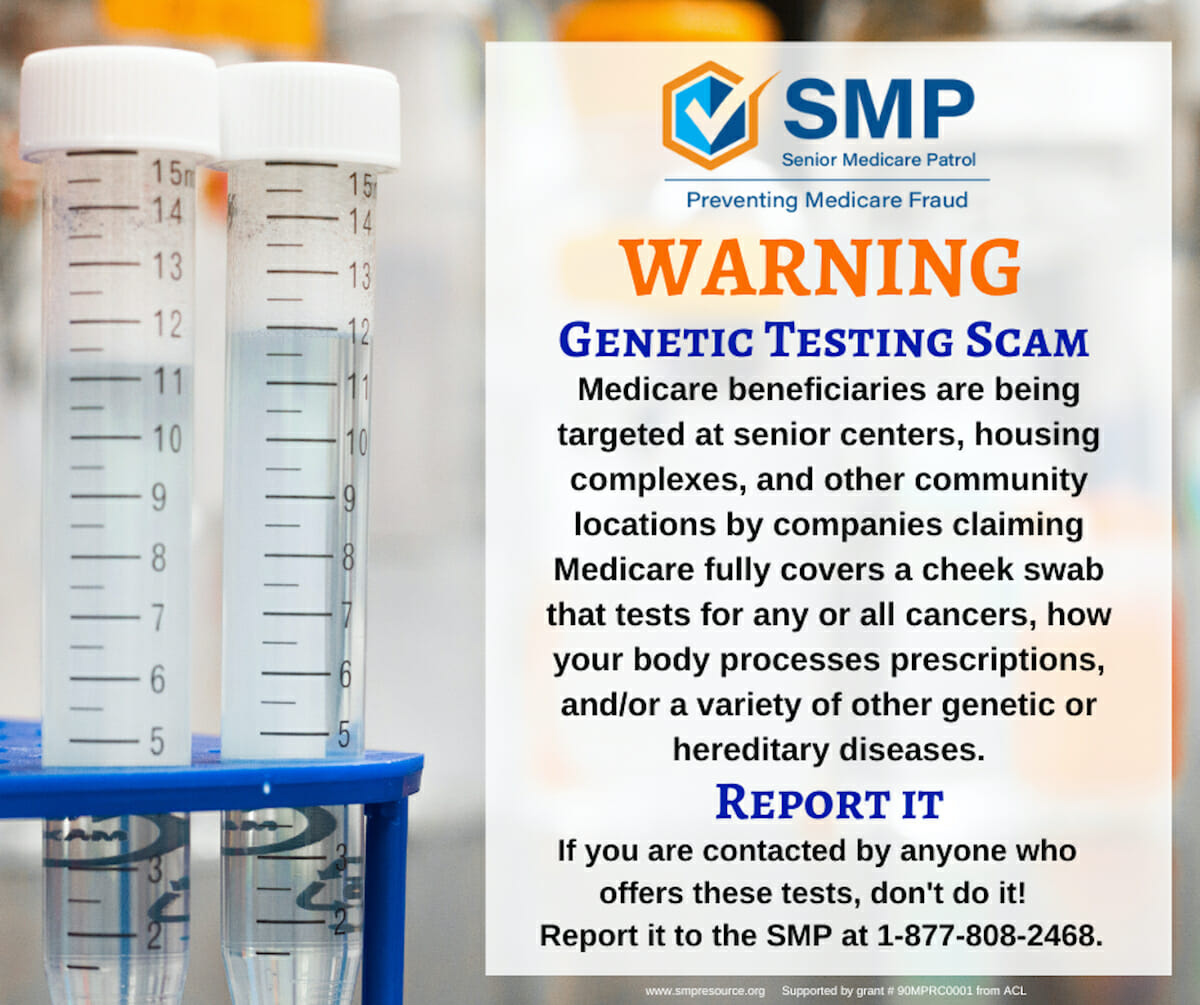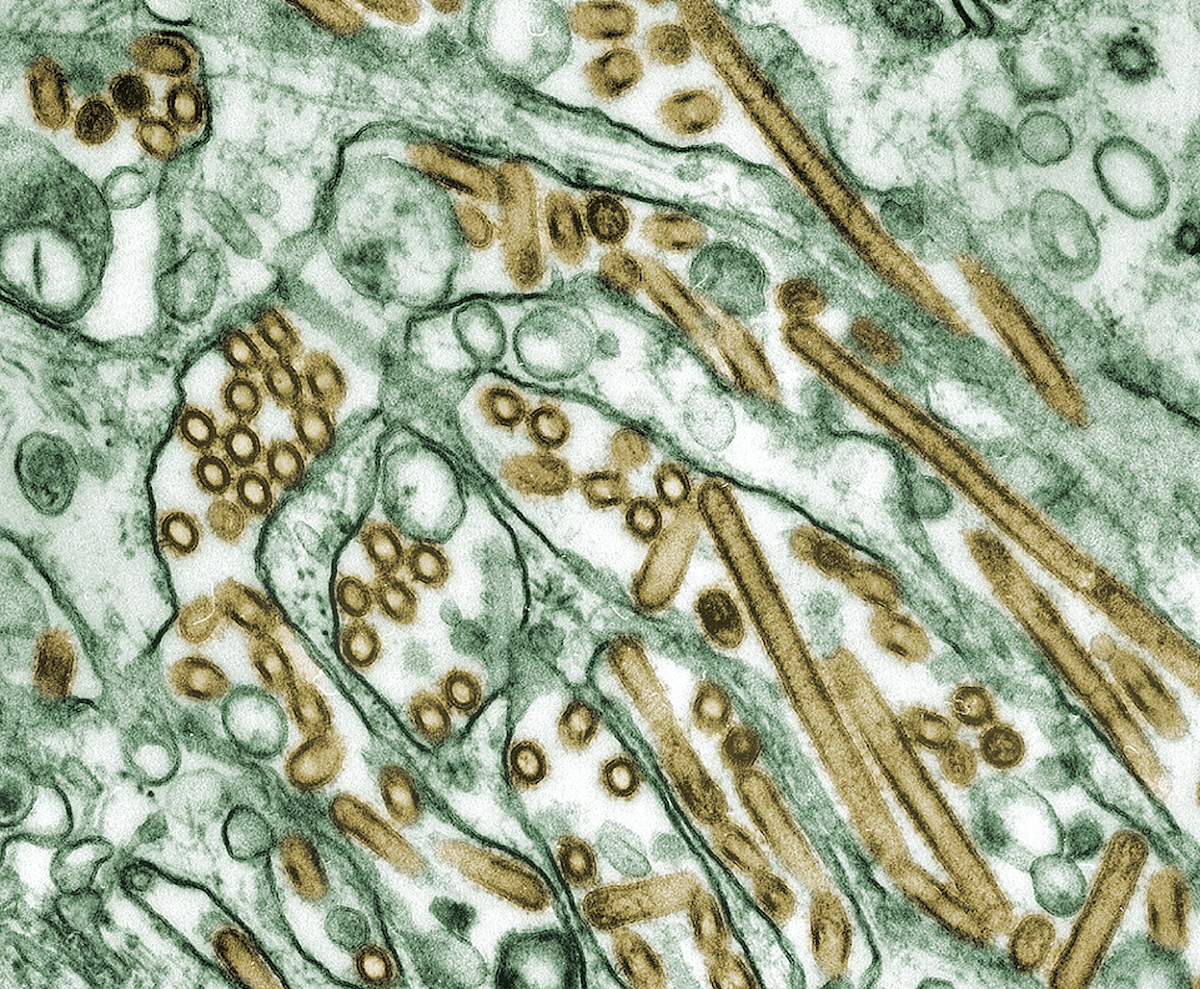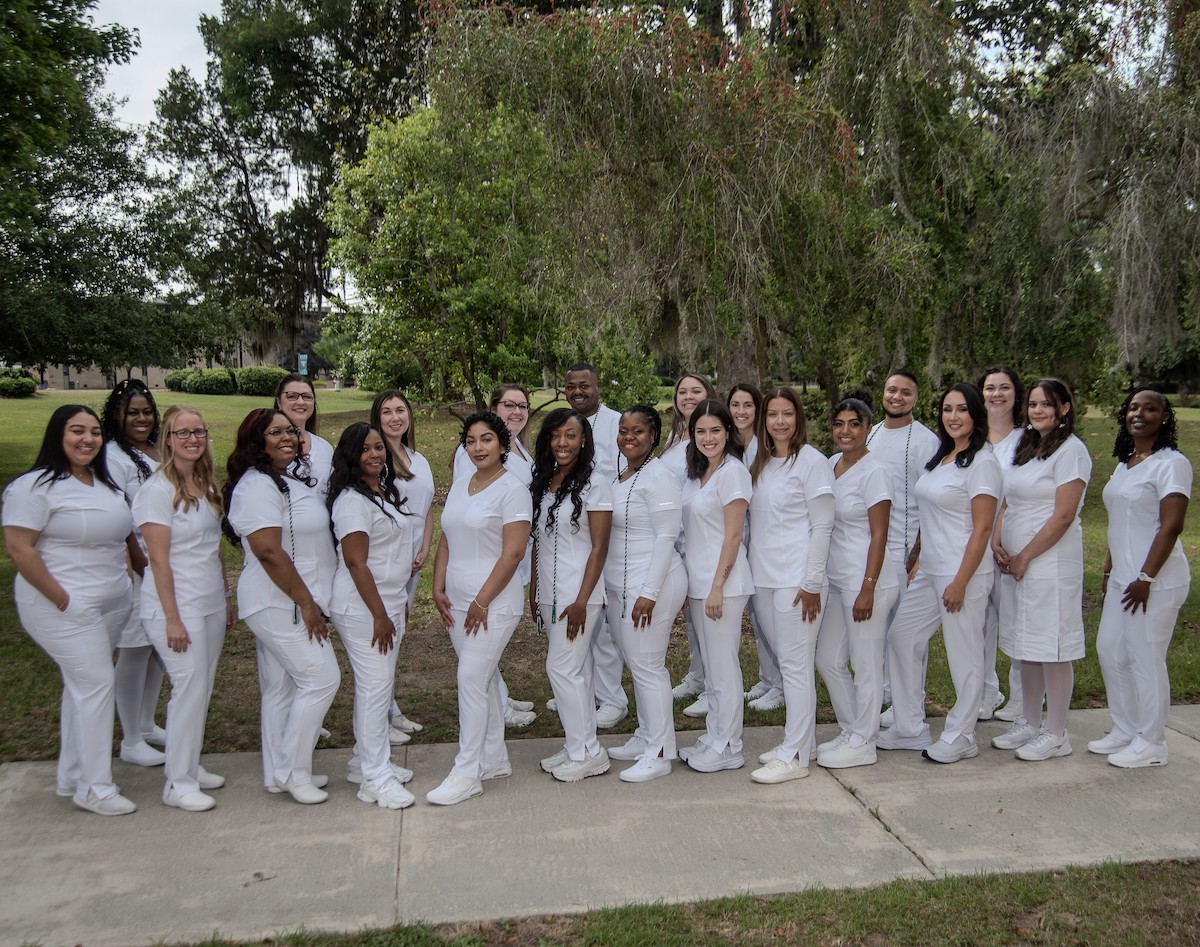This is a time of year when thoughts turn to giving… just be careful you’re not getting taken. Especially if you’re an older health consumer.
Over the next few weeks, Care magazine® will be spotlighting several medical scams that even savvy seniors can fall for.
Scammers are offering Medicare beneficiaries cheek swabs for the following screenings/tests to obtain their Medicare information for fraudulent billing purposes, or possibility medical identity theft. The screenings/tests include genetic testing for cancer, hereditary cancer, pharmacogenetics (medication metabolization), DNA, dementia and Parkinson’s. With cardiovascular genetic testing, screening/tests advertised can include cardio/cardiac genetic, comprehensive cardiovascular panel, cardiovascular disease genetic kit, comprehensive cardiomyopathy NSG or hereditary cardiovascular profile.
Dr. Kristen McDermott-Mozzo (our daughter-in-law), who works with older patients in a clinical setting, brought to my attention serious frauds that often target this patient demographic. She has provided background and information on the testing/screening scams that she most often encounters when interacting with her patients.
In this issue, we will talk about how to avoid genetic and cardiovascular genetic testing fraud when Medicare is billed for a test or screening that was not medically necessary and/or was not ordered by a beneficiary’s treating physician.
With this type of fraud, companies will
- Offer you “free” or “at not cost to you” testing without a treating physician’s order, then bill Medicare.
- Use “telemedicine” to offer testing to you over the phone and arranging for an unrelated physician or “teledoc” to order the test.
- Call you via telephone stating your doctor or cardiologist requested that you have the testing done and they will send you a testing kit.
- Bill Medicare (usually thousands of dollars) for a broad range of genetic tests that you did not request or possibly even receive. If Medicare denies the genetic test claim you could be responsible for the entire cost of the test, averaging $9,000—$11,000.
- Bill Medicare for a pharmacogenomic test (to determine how you metabolize drugs) that are not covered by Medicare or apply to you
- Request your Medicare number (and/or possibly driver’s license) at health fairs, senior centers, assisted living facilities, malls, farmers’ markets, parking lots outside retail store, home shows, or at church-sponsored wellness events
What you can do to stop genetic testing fraud
- Be sure that your treating doctor has assessed your condition. Although Medicare covers many genetic tests for diagnostic use, it ONLY covers one preventative genetic test to screen for cancer.
- Do not give out your personal information or accept screening services from someone at a community event, a local fair, a farmer’s market, a parking lot, or any other open event.
- Always read your Medicare Summary Notice (MSN) or Explanation of Benefits (EOB). The words “gene analysis,” “molecular pathology,” or “laboratory” may indicate questionable genetic testing has occurred.
- If you received a cheek swab or a screening that was not medically necessary, report your concerns about billing errors or possible fraud to Medicare and your local SMP (Senior Medical Patrol). In South Carolina, the Department on Aging/SMP can be reached at aging.sc.gov or call 1-800-868-9095. Note that there are numerous Current Procedural Terminology (CPT) codes that have been associated with genetic testing complaints as noted by SMP. All the codes are in the 81200 – 81400 CPT series associated with Gene Analysis and Molecular Pathology. You can review your MSN for these codes.
Next week: Durable Medical Equipment fraud
Sources: Kristen McDermott-Mozzo, DO, is a board-certified family medicine physician; https://www.smpresource.org/Content/Medicare-Fraud/Fraud-Schemes/












